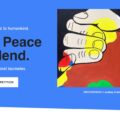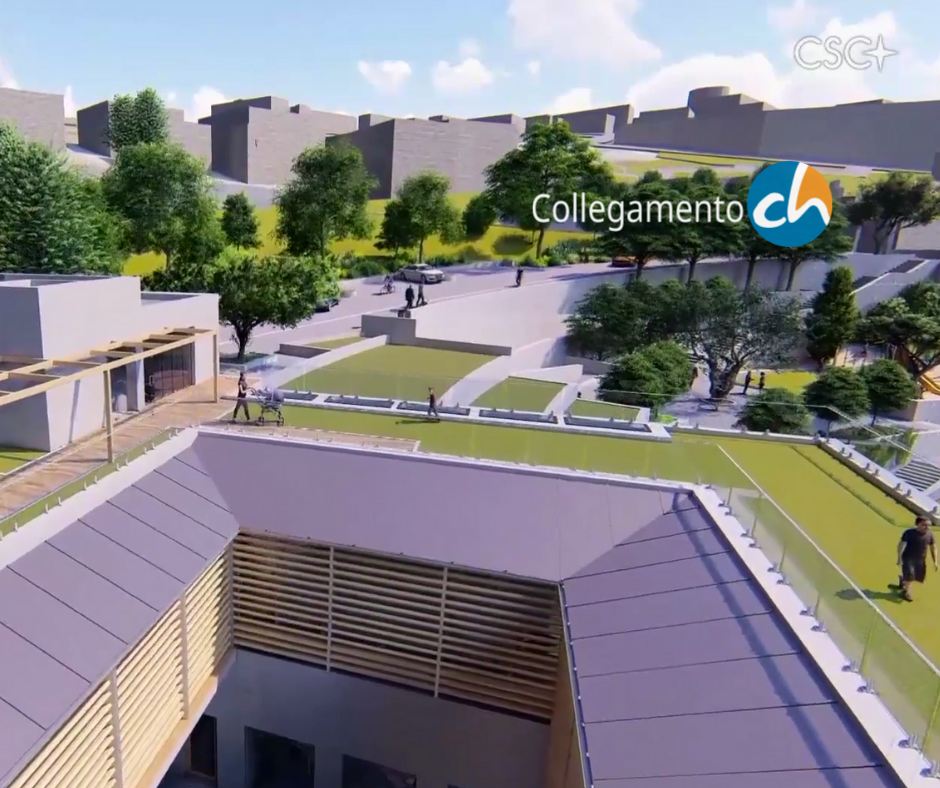
Workshop
A diplomacy of small gestures
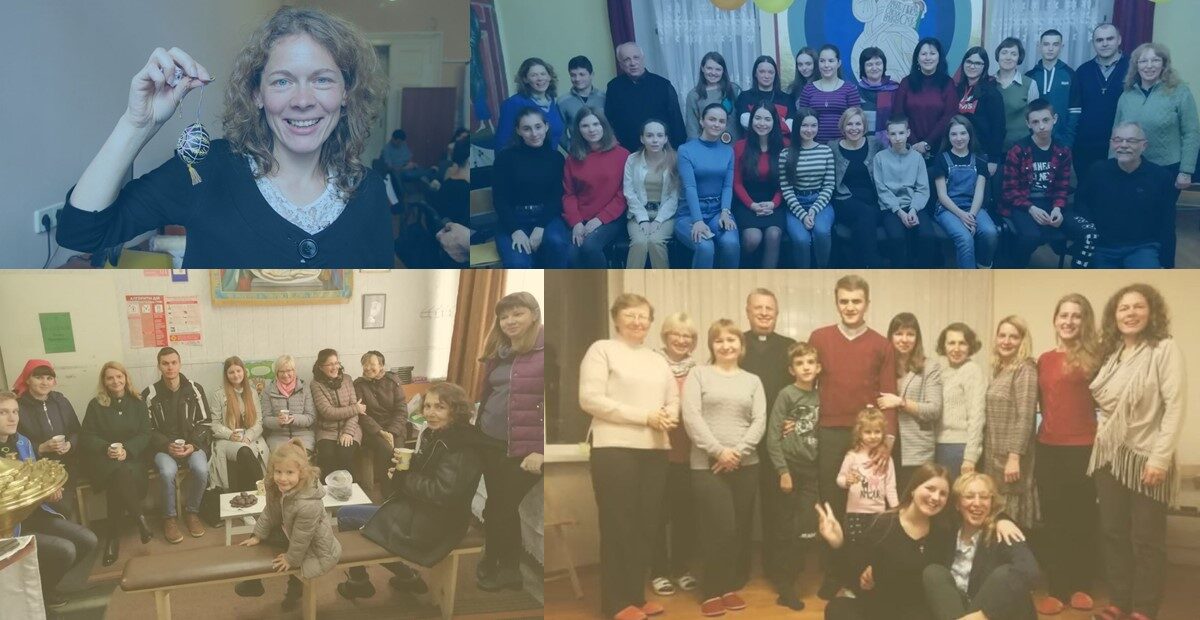
What does life look like in Kiev (Kyiv) as tensions rise over a possible war? We asked Mira Milavec, who has been living in Ukraine for nearly three years.
In the last few weeks, winds of war have been blowing over Eastern Europe, as a trial of strength takes place between the pro-Western government in Kiev (Kyiv) and the Russian one. For weeks there has been tension between the two countries, a tension that has lasted at least since 2014 and has precise political and economic causes that go even further back in time. This article is not a geopolitical analysis – it is not our place. Instead, we decided to listen to the voices of those who are directly affected by this situation. We have spoken to Mira Milavec, from Slovenia, who has been living in Kyiv for three years.
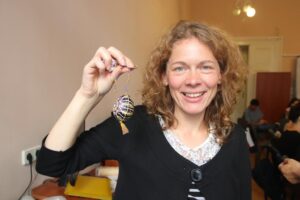
The media are reporting about the situation in Ukraine every day. How would you, who live in Kiev (Kyiv), describe it?
“Lately we were asked to give interviews for several radio and TV channels, they ask us what our lives look like at the moment: to tell you the truth, we are not experiencing the tension you hear about abroad. We are aware of the issues at stake, we know there could be a war and we’re preparing for the so-called ‘plan B’, but, above all, we’re trying to get on with our everyday lives, with our daily challenges and with our work, which is based on dialogue”.
What do you mean when you say your work is based on dialogue? Why is that?
“I’m in Kyiv to support and encourage the Focolare Movement community, and I work with Caritas. From morning to night, either for work reasons or simply because it’s my life choice, I seek dialogue at every opportunity.
What are the clearest obstacles you encounter?
“Ukraine is a very heterogeneous country, a diverse nation and one that has suffered a great deal. The majority are from the Orthodox Church, but if you talk to people about what’s happening, some will tell you that they’re ready to go out onto the streets to defend themselves, so there’s still a lot of work to be done, the path to dialogue is very steep”.
Why, in your opinion?
“Because of what I was just saying. Ukrainians have suffered a lot, they have a complex past, and now they are alone, they have been abandoned by the Russians and, lately, by Europe as well. The latter is perceived as being distant and mostly preoccupied with its own interests. This abandonment has led, on a personal level, to an individualism which, in such a tense situation, could blow up.
You have been living in Kyiv since 2019: what can you tell us about the Ukrainian people?
“On the one hand, like I said, they are a traditional people, who still tend to struggle to see each other as brothers and sisters. On the other hand, though, when you really start listening to them, people will give you everything they have, they will open up and make concrete efforts to get closer to one another. Individualism comes from fear, from being left alone, rather than from a conscious choice to move away from other people”.
How do you earn this trust?
“By choosing to stay, for instance. As foreigners, in preparation for the worst, we received several offers – including diplomatic ones – to return to our home countries. Together with my companions and my community, we made a discernment, and it was immediately clear that we would not leave. These people are our people, our family, and we have to, we want to stay here with them. Many people were impressed by our choice, they realised they could trust us, they understood that we were here for a greater purpose”.
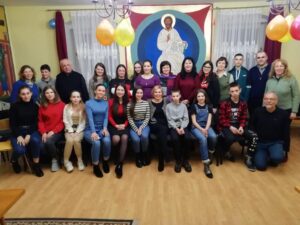
Dialogue, however, remains a challenge…
“On 26th January, a day of prayer for peace in Ukraine called for by Pope Francis, the Apostolic Nuncio openly talked about praying for enemies during mass. It’s not easy, but being here makes me realise that, in order to respond to the challenge, you have to practise what you preach, in small things and in big things. You have to show a possible alternative and a broader perspective. The challenge is precisely to remain faithful to this way of life. Our choice to stay, as I was telling you, had quite a powerful impact, it gave the community a boost. And it wasn’t just our choice with the Focolare Movement – the Church and many other people who do good also decided not to flee the country”.
Do you help one another?
“Yes, of course, we work together, we try to help each other with preparations for plan B, by making lists of the safest places to hide in case of danger, but especially by encouraging each other and by doing our part of what has to be done”.
And what is your part now?
“My part is working on a Caritas project tackling domestic violence and aiming to protect women. The project will be launched on 1st March, and we are going ahead with it despite the situation, because it’s our duty.”
You are making a lot of effort, but politics is going in a different direction…
“I don’t know about that, but I can tell you that – naming no names – there are diplomats, ambassadors, ambassadors’ wives, who believe in dialogue, who pray and work for it. It’s very hard work, but it’s essential, and sooner or later it will pay off”.
They pray?
“Yes, they do, we all pray for peace, sometimes even together, and we do our best to practise that diplomacy of fraternity in the little things which, in the end, makes a difference. This, as well as the mutual help that is in place, makes you realise that love really is stronger than anything”.
What about us? What can we do?
“You can encourage dialogue, choose dialogue at all costs, even in the little things – when faced with a difficult situation, make discernment and ask yourself: should I spread more panic, more division, or should I do something to promote dialogue? Like communicating vessels, your choices benefit me as well. They benefit all of us here, who, not knowing whether we’ll live or die, think twice about what we should say or do. Above all, we think about what will remain. And what remains is that we are brothers and sisters. There’s nothing else now”.
